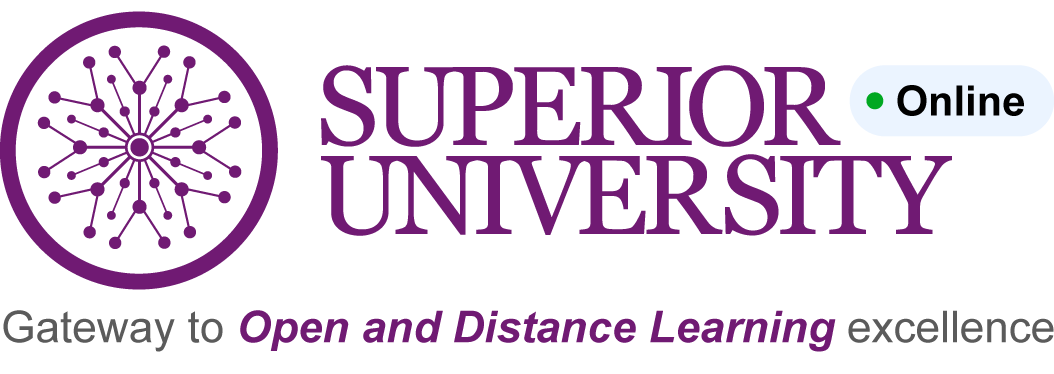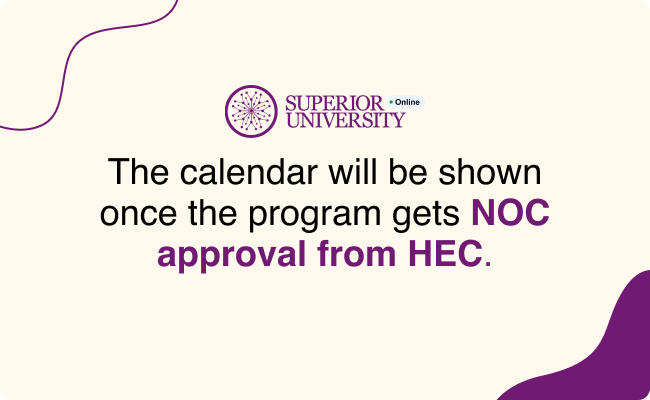BS Artificial Intelligence
Program Educational Objectives (PEOs)
The following program educational objectives (PEOs) are expected to be demonstrated by Artificial Intelligence graduates within 4 years of their graduation. Artificial Intelligence professionals will:
PEO 1: Utilize their skills and knowledge to support businesses, governments, and organizations in strategy development and informed decision-making.
PEO 2: Practice in the field of Artificial Intelligence in a socially and ethically responsible manner.
PEO 3: Effectively communicate technical and managerial information through both oral and written channels.
PEO 4: Work effectively in leadership roles within teams or entrepreneurial settings.
PEO 5: Engage in continuous learning, exploring new areas in computing and artificial intelligence or conducting research for academic and professional growth.
Program Learning Outcomes (PLOs)
Here are the Program Learning Outcomes (PLOs) for the BS Artificial Intelligence program, based on the provided details:
PLO 1: Strategic and Informed Decision-Making
Graduates leverage their technical proficiency to analyze data, model outcomes, and support complex decision-making processes in various sectors such as business, government, healthcare, and more. By doing so, they provide actionable insights that drive organizational strategies.
Graduates leverage their technical proficiency to analyze data, model outcomes, and support complex decision-making processes in various sectors such as business, government, healthcare, and more. By doing so, they provide actionable insights that drive organizational strategies.
PLO 2: Ethical and Social Responsibility in AI Practice
Apply knowledge of mathematics, science, and specialized engineering fundamentals to solve complex engineering problems.
Apply knowledge of mathematics, science, and specialized engineering fundamentals to solve complex engineering problems.
PLO 3: Problem Analysis
Identify, formulate, and analyze complex engineering issues using principles of mathematics, natural sciences, and engineering sciences.
Identify, formulate, and analyze complex engineering issues using principles of mathematics, natural sciences, and engineering sciences.
PLO 4: Solution Design
Design solutions and systems that address complex engineering issues, considering public health, safety, cultural, societal, and environmental factors.
Design solutions and systems that address complex engineering issues, considering public health, safety, cultural, societal, and environmental factors.
PLO 5: Modern Tool Usage
Utilize appropriate tools, techniques, and modern engineering and IT resources for prediction, modeling, and complex engineering activities, while understanding their limitations.
Utilize appropriate tools, techniques, and modern engineering and IT resources for prediction, modeling, and complex engineering activities, while understanding their limitations.
PLO 6: Teamwork and Collaboration
Work effectively as an individual and as part of a team in multidisciplinary settings.
Work effectively as an individual and as part of a team in multidisciplinary settings.
PLO 7: Effective Communication
Communicate complex engineering concepts effectively, both orally and in writing, with the engineering community and society at large.
Communicate complex engineering concepts effectively, both orally and in writing, with the engineering community and society at large.
PLO 8: Societal and Global Awareness
Apply contextual reasoning to evaluate societal, health, safety, legal, and cultural issues related to engineering practice and complex problem-solving.
Apply contextual reasoning to evaluate societal, health, safety, legal, and cultural issues related to engineering practice and complex problem-solving.
PLO 9: Professional Ethics
With a strong commitment to ethics, graduates adhere to the professional standards of AI engineering, ensuring integrity and accountability in their work, particularly around data privacy and algorithmic fairness.
With a strong commitment to ethics, graduates adhere to the professional standards of AI engineering, ensuring integrity and accountability in their work, particularly around data privacy and algorithmic fairness.
PLO 10: Lifelong Learning
Recognize the importance of lifelong learning in the context of innovation and technological advancements.
Recognize the importance of lifelong learning in the context of innovation and technological advancements.
PLO 11: Societal and Environmental Impact
Assess the societal and environmental impact of engineering solutions, with a commitment to sustainable development.
Assess the societal and environmental impact of engineering solutions, with a commitment to sustainable development.
PLO 12: Project Management
Demonstrate project management skills and apply engineering principles as a team member or leader to effectively manage multidisciplinary projects.
Demonstrate project management skills and apply engineering principles as a team member or leader to effectively manage multidisciplinary projects.
PEOs-PLOs Mapping
| PLOs | PEOs | ||||
|---|---|---|---|---|---|
| PEO 1 | PEO 2 | PEO 3 | PEO 4 | PEO 5 | |
| PLO-01: Strategic and Informed Decision-Making | ✓ | ||||
| PLO-02: Ethical and Social Responsibility in AI Practice | ✓ | ✓ | |||
| PLO-03: Problem Analysis | ✓ | ||||
| PLO-04: Solution Design | ✓ | ✓ | |||
| PLO-05: Modern Tool Usage | ✓ | ✓ | |||
| PLO-06: Teamwork and Collaboration | ✓ | ||||
| PLO-07: Effective Communication | ✓ | ||||
| PLO-08: Societal and Global Awareness | ✓ | ||||
| PLO-09: Professional Ethics | ✓ | ||||
| PLO-10: Lifelong Learning | ✓ | ||||
| PLO-11: Societal and Environmental Impact | |||||
| PLO-12: Project Management | ✓ | ||||


